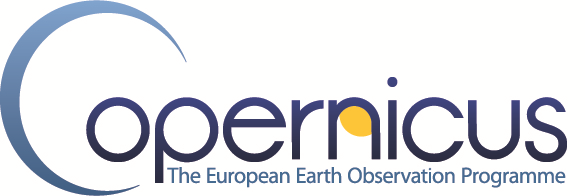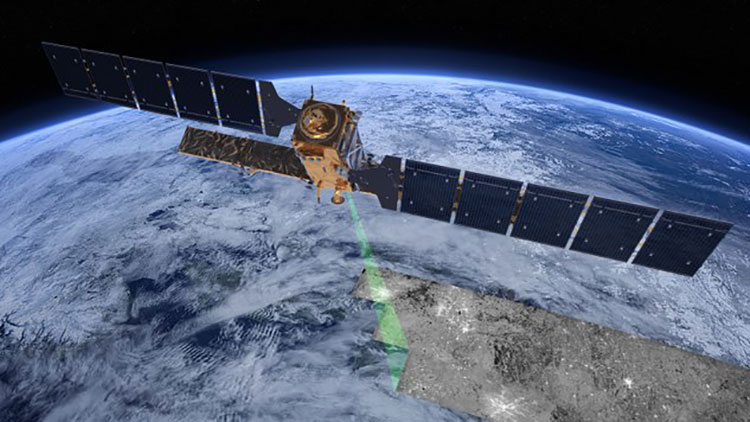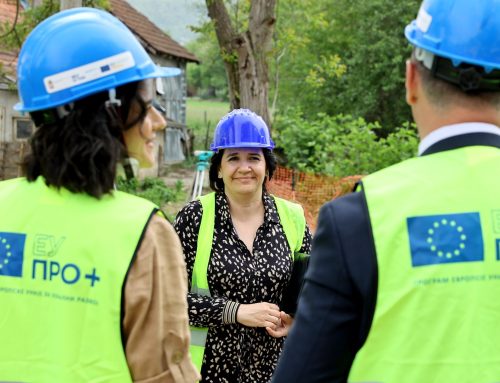European Commission and Ministry of Education, Science and Technological Development of the Republic of Serbia establish a partnership on Earth Observation by signing a Copernicus Cooperation Arrangement
As part of the European Neighbourhood Policy, and to allow the benefits of its Copernicus Earth Observation and Monitoring programme to extend to EU candidates, on Thursday 7 June the European Commission has signed a Cooperation Arrangement with the Ministry of Education, Science and Technological Development of the Republic of Serbia.
The Copernicus programme, the world’s most ambitious and successful Earth observation programme, delivers benefits in a wide range of applications, e.g. land, marine and atmosphere monitoring as well as support in the forecasting, management and mitigation of natural disasters. Its full, free and open data policy has proven its merits by allowing the development of a thriving user base in Europe and beyond.
The Cooperation Arrangement establishes the Serbian BioSense Institute – Research and Development Institute for Information Technologies in Biosystems (hereinafter referred to as “BioSense Institute”) as the focal point in Serbia for the Copernicus programme in terms of data access and use of Sentinel data.

Both sides aim to develop cooperative activities to strengthen and stimulate cooperation on Earth observation data, applications and services to foster an active downstream sector and joint product development. They also support a free, full and open access for end users to Copernicus Sentinel satellite data and information,
Considering the importance of in situ observations, which are complementary to space-based observations, the “BioSense Institute” intends, under this Arrangement, to facilitate access to data from regional observatory networks for the Copernicus programme, including geophysical and meteorological networks. The European Commission intends on its side to encourage EUMETSAT and ESA to establish cooperation with the Serbian data centre.
Under the Cooperation Arrangement, the “BioSense Institute” will co-ordinate and promote the use of information and data provided by the Copernicus programme with various Serbian institutions in the public sectors and with academia and private enterprises. It will also act as an interlocutor with the European agencies for data exchange and information so as to fulfil the specific needs of those user groups and to coordinate the access to in situ data from Serbian networks.
Serbian citizens, academics, researchers and private sector will be provided with access to the data from the family of Copernicus Sentinel satellites using high bandwidth connections from data hub to data hub. Both sides also aim to develop cooperation activities in the areas of data access and use of Sentinel data between the agencies entrusted with the operations of the Sentinel satellites on the one hand and the Serbian data centre on the other.
The “BioSense Institute” intends to provide an interface between its biosystems database and the Copernicus Data Information and Access Service (DIAS), which will be launched in June 2018, in order to create opportunities for processing of Sentinel data in conjunction with data related to biosystems.
Each side will fund their own activities and adhere to the principle of ‘no exchange of funds’ in respect to this Cooperation Arrangement.
The Cooperation Arrangement has been signed in Brussels on 07 June by Philippe Brunet, Director for Space Policy, Copernicus and Defence, on behalf of the European Commission and by Vladimir Popovic, State Secretary at the Ministry of Education, Science and Technological Development on behalf of the Republic of Serbia.
Background
Copernicus, is the world’s most ambitious and successful Earth observation programme. It already helps save lives at sea, or during the response to natural disasters such as earthquakes, forest fires or floods, and allows farmers to better manage their crops, or to decision makers to better understand and mitigate Climate Change. It collects data from Earth observation satellites and ground stations, airborne and sea-borne sensors.
The benefits and full, free and open data policy of the Copernicus programme extend globally.
Copernicus processes data and provides users with reliable and up-to-date information through a set of services in six thematic areas: land monitoring, marine monitoring, atmosphere monitoring, climate change, emergency management response and security.
These services are operational and are enabled by the Earth observation data from the seven Copernicus Sentinel satellites currently in orbit, as well as a number of contribution missions from other operators.
More information available at:
Stockshots




